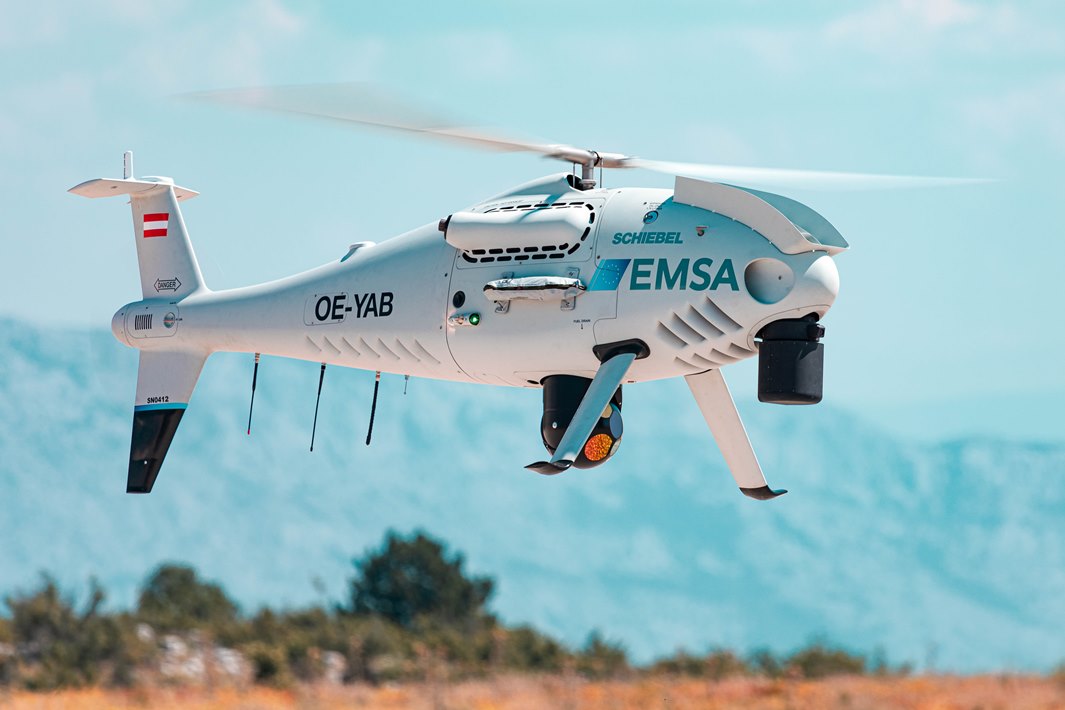EMSA RPAS drone service to boost maritime surveillance in Croatia
EMSA’s service of Remotely Piloted Aircraft Systems (RPAS) is now being used by the Croatian authorities to assist them in a range of coast guard related functions including vessel traffic monitoring, search and rescue, and detection and monitoring of marine pollution. The request made in February 2019 by Croatia’s Ministry of the Sea, Transport and Infrastructure sees a vertical take-off and landing RPAS added to their existing surveillance mechanisms for an initial period of three months.
The RPAS comes under the control of the requesting member state which in this case specifically refers to the Maritime Rescue Coordination Centre of Rijeka, as well as the port harbourmaster and Vessel Traffic Service of Split. The RPAS will be based on the island of Brač and will be expected to carry out regular patrol flights, on-demand incident monitoring missions and specific inspection operations.The RPAS comes under the control of the requesting member state which in this case specifically refers to the Maritime Rescue Coordination Centre of Rijeka, as well as the port harbourmaster and Vessel Traffic Service of Split. The RPAS will be based on the island of Brač and will be expected to carry out regular patrol flights, on-demand incident monitoring missions and specific inspection operations.
The RPAS is a Camcopter S-100 model under contract to EMSA from Schiebel Aircraft GmbH and has several specialised features which make it particularly useful to the Croatian authorities. The aircraft can operate both during the day and night, has a maximum range of 100km and six hours operational flight time. In addition, it is equipped with high performance Wescam MX-10 optical and infrared cameras as well as an Automatic Identification System receiver, and a PT-8 Oceanwatch automated maritime surface search sensor. This sensor detects targets at sea during the day and is particularly useful in man-over-board situations. The Camcopter is also capable of detecting distress signals with its on board EPIRB sensor.
“We are trying to roll out these multipurpose RPAS services as efficiently as possible to interested member states. There is enormous potential that we are already seeing, and I very much hope that Croatia - my home country - will be able to maximise the use of this particular model in its day-to-day maritime surveillance tasks,” said EMSA Executive Director, Maja Markovčić Kostelac.
EMSA’s RPAS services were set up in 2017 and have now been operational in Portugal, Spain, Iceland, Denmark and Italy. They were developed to assist in maritime surveillance and monitoring operations to support national authorities involved in coast guard functions. This includes: maritime pollution and emissions monitoring; detection of illegal fishing, anti-drug trafficking, and illegal immigration; border surveillance; and, search and rescue operations
See the RPAS section on our website for more info / Contact us at information@emsa.europa.eu
-
Published23.07.2019
-
Updated23.07.2019

